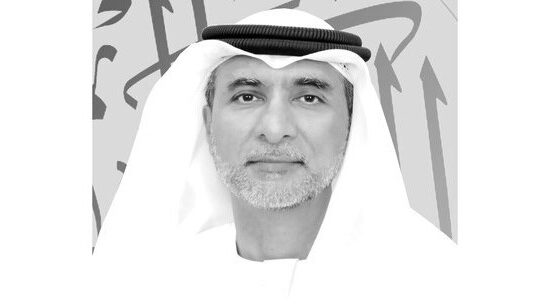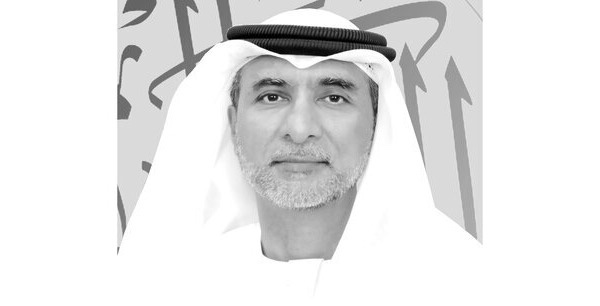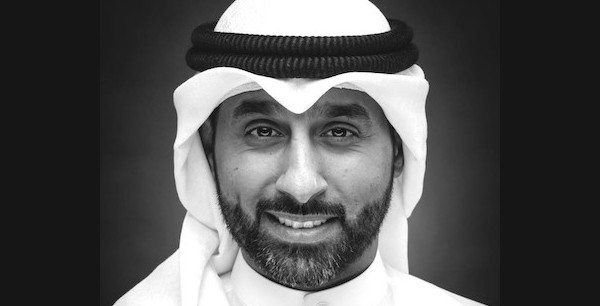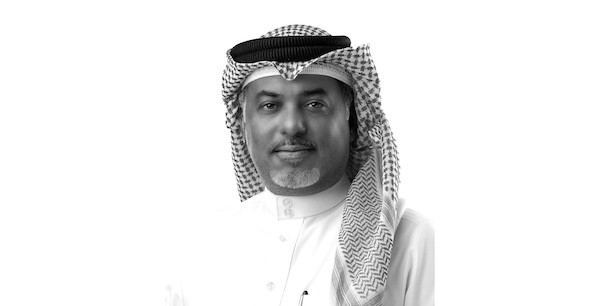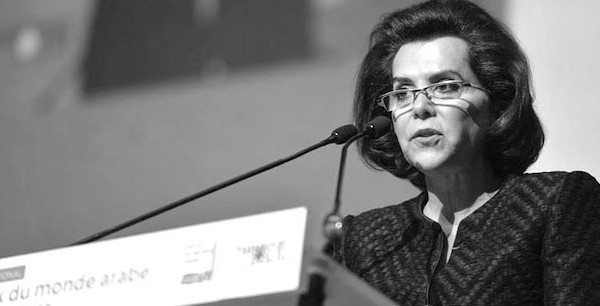
Mr. Maen Razouqi is a highly influential leader in Kuwait, with extensive experience in energy, technology, and business innovation. As the former CEO of Kuwait Airways, he played a key role in guiding the airline through a transformative period. He is also a founding director of AFKAR Ventures, an EnergyTech investment firm focused on sustainable growth in the MENA region.
With over 26 years of global experience, Maen has held leadership positions across aviation, energy, and technology, working in North America, Europe, Africa, and the Middle East. He is known for his expertise in operations, marketing, strategy, and team building.
In addition to his work at Kuwait Airways, Maen holds various leadership roles. He is the Chairman of Trans Sahara, a technology trading hub in Kuwait, and the Chairperson of Wasel, a Last Mile Logistics Integrator. He is also a Board Member of IMCC, a marine service company, and an Advisory Board Member of Global Rig Moves. In 2024, Maen co-founded Da Gusto, a regional Italian trattoria, and serves as a senior advisor to Union Trading Company, a retail business established in 1949.
In this interview, Maen shares valuable insights on leadership, strategic investments, and building future-ready businesses.
Kinza : Mr. Maen, you’ve had a remarkable journey leading in industries as diverse as energy and aviation each with its own unique challenges. What leadership skills do you believe have been key to your success, and how have you adapted to thrive in such different environments?
Maen: In my opinion, leadership is a skill you learn through experience over a lifetime, starting from activities like sports in school to challenges in your professional and personal life. Leadership isn’t something you’re born with, it’s something you develop over time.
,,You become a leader with time. You may be born with skills—perhaps leadership skills—but for you to truly be recognized as a leader, it takes time.
Leadership, in my opinion, is part of a lifetime of experiences.”
Effective leadership is about achieving results, whether it’s guiding a group from point A to point B or transforming an organization. For me, it’s not about authority but about clarity and guidance. Even a well-crafted email can demonstrate great leadership if it helps a team move forward effectively.
I also mentor future leaders through “Around People,” a platform I co-founded to share insights and support aspiring leaders. Leadership thrives on dialogue, conviction, and measurable objectives—not power or position. The best leaders hire smarter people and place them in roles where they can thrive, ensuring the organization works as a cohesive, results-driven unit.
Kinza: I agree that leadership grows through challenges in life. What was the key moment or experience that made you a leader?
Maen: The turning point comes at the moment of trust, because leadership is built on trust. That, to me, is very important. When friends, family, colleagues, or people trust you, then you can take the first step toward leading an organization or structure effectively.
How did I build that trust? It starts with integrity. To be an integral part of any society, you need ethics. These ethics are based on principles like building trust, being truthful, and facing difficult situations.
,,Many leaders struggle with challenges, often avoiding the truth or shifting blame, but true leadership requires confronting issues honestly.”
I learned this early in my career as a junior manager. Facing challenges truthfully and ethically made me stronger and more effective, and over time, this approach became part of my DNA.
Kinza: Why do you think leadership qualities are so important for future generations? Do you see any differences between the challenges you faced in your life and the challenges the new generation might face?
Maen: Some may think I’m out of touch, but I’m very aware of the digital transformation happening today. Leadership is becoming increasingly digital, and I believe AI will eventually take on leadership roles, even as CEOs. AI is already replacing jobs in sectors like analysis and medicine, and one day, an AI could even lead a clinic or business.
For the new generation, leadership will be more digitally oriented, with tools like ChatGPT offering instant advice. But while technology enhances efficiency, true leadership still requires a human touch—emotions are essential for connection and understanding.
I believe this shift is inevitable, but the challenge will be balancing digital efficiency with the interpersonal connections that define effective leadership. Future leaders will need to embrace technology while maintaining that human element. I might not witness the full impact, but it’s an interesting evolution.
Kinza: I agree that personal communication and face-to-face meetings still hold value, but do you think that will change in the future?
Maen: Yes, it’s definitely changing. Future leaders are making decisions through emails, WhatsApp, Snapchat, and other digital tools. I often find myself thinking, “Why not just call and discuss this directly?” But the response is always, “I’ll just send an email.” There’s a growing reluctance toward personal interaction, especially with the younger generation, and I believe this shift will only continue.
Kinza: What do you hope for your son, and how would you support him in becoming a great leader?
Maen: Making the right decisions and doing things the right way are important, but it’s also crucial to let children experience life and not dictate every step for them. You need to give them space, trust, and the right tools, but also allow them to make mistakes.
Today, many people don’t allow mistakes, whether it’s with their kids or employees. But mistakes are key learning opportunities. If you guide them, even their early mistakes can become turning points that shape their future success.
,,You hear people say, “I’ve never lost a tender,” or, “I’ve never lost a contract.” That’s not always because of skill—there’s usually some element of luck. And we have to accept that. It’s normal to lose 30-40% of the contracts or businesses you pursue. What matters is learning and growing from those experiences.”
Those who never face setbacks are often just lucky. Success isn’t about never losing; it’s about learning from those losses and using them to grow.
Kinza: I’d love to hear how you personally handle losing a business deal or an important opportunity—whether it’s for you, your company, or even your country. How do you process that emotionally, and how do you approach it as a leader?
Maen: I follow a simple motto: “I never lose. I either win or learn.” Losing isn’t a setback; it’s an opportunity to learn. I ask myself, “What can I take from this to avoid repeating the same mistake?”
The key is learning from losses, which over time reduces their frequency. In leadership, focusing on winning every battle is a mistake. It’s better to choose the most important battles and aim for the overall win by understanding your goals and strategy.
,,Life is like that – you have to choose your battles wisely.“
Kinza: Thank you. You have a lot of experience, and as a board member, your decisions are very important. I’d like to know, what do you think are the most important investments for the future, both for the country and personally? What should we focus on?
Maen: There are different mindsets when it comes to investment. Investing can follow a traditional, conservative path, like real estate, which is always important because we need spaces to live and work.
But for growth, I see three key sectors:
- Digital Sector – Anything related to AI, data, and tech is booming. This is where a lot of growth and opportunities are.
- Health Sector – The demand for healthcare is rising, and there are still many challenges to address, like finding cures for diseases. There’s a lot of potential for innovation in healthcare.
- Education Sector – Traditional education models are changing. We need more practical, experience-based learning to train professionals faster and more efficiently. This includes addressing the shortage of doctors and healthcare workers globally.
These sectors offer huge opportunities, but we also need to improve our approach to meet the world’s growing needs.
By 2030, demand for doctors and nurses will increase by 40%, but the medical field only produces about 8% more professionals each year. This gap means many people, especially in Asia, Africa, and South America, won’t have access to proper healthcare. If we can train more healthcare workers, it will lower costs and make healthcare more accessible.
In short, there are big opportunities in the digital, health, and education sectors. But we need to invest and improve how we educate and train professionals to meet the world’s growing needs.
Kinza: Great, I completely understand why those three sectors are important. Do you personally invest in those sectors? You mentioned that you built a company focused on leadership, which seems connected to education and learning. But do you also invest in other types of businesses?
Maen: I’m heavily focused on the digital sector. About 90% of my portfolio is in digital, which could include areas like energy, education, entertainment, and potentially health. I believe in approaching these sectors from a digital perspective, but I haven’t invested in health yet because I don’t have the right technical skills or come across the right opportunity.
When it comes to education, I focus more on mentorship rather than traditional, formal education.
Kinza: What’s your take on investors today? Why are leadership qualities important for making the right investment decisions? How can they make sure they’re investing in areas that benefit not just profit, but also people and society?
Maen: Investments need clear guidelines. Non-profits should focus on social responsibility, while profit-driven investments come with higher risks. A diverse portfolio is key to managing those risks. For example, during COVID-19, investing in both airlines and oil helped balance losses.
,,if you’re investing to generate profit and returns, you need to accept diversity in your portfolio and be prepared for a higher risk of failure.”
The more diverse your investments are, the better. If you focus on just one business, you’re exposed to higher risks. Risks aren’t just financial—they can also be geopolitical. For instance, oil prices can drop due to sanctions or war. So, embrace risk, manage it wisely, and use your risk appetite to your advantage.
Kinza: What advice would you give to young leaders, especially considering the differences in leadership qualities across regions like America, Europe, and the GCC?
Maen: Listen more than you speak. You’d be surprised by how much valuable information you get from listening, especially from those who disagree with you. Many leaders don’t listen enough, but understanding different perspectives is key.
There’s a saying in America: “Keep your friends close, but your enemies closer.” This means listening to those with differing opinions, not just those who agree with you. Be open to change and don’t be rigid in your thinking. If you’re wrong, admit it and learn from it.
,,Listen more than you speak.“
By staying flexible and open-minded, you’ll grow as a leader and be more successful in the long run.
All RIGHTS OF PICTURES AND IDEAS RESERVED. MADE BY KINZA VIERIK. All Contents Copyright 2022
Le Globless . All Rights Reserved ®


